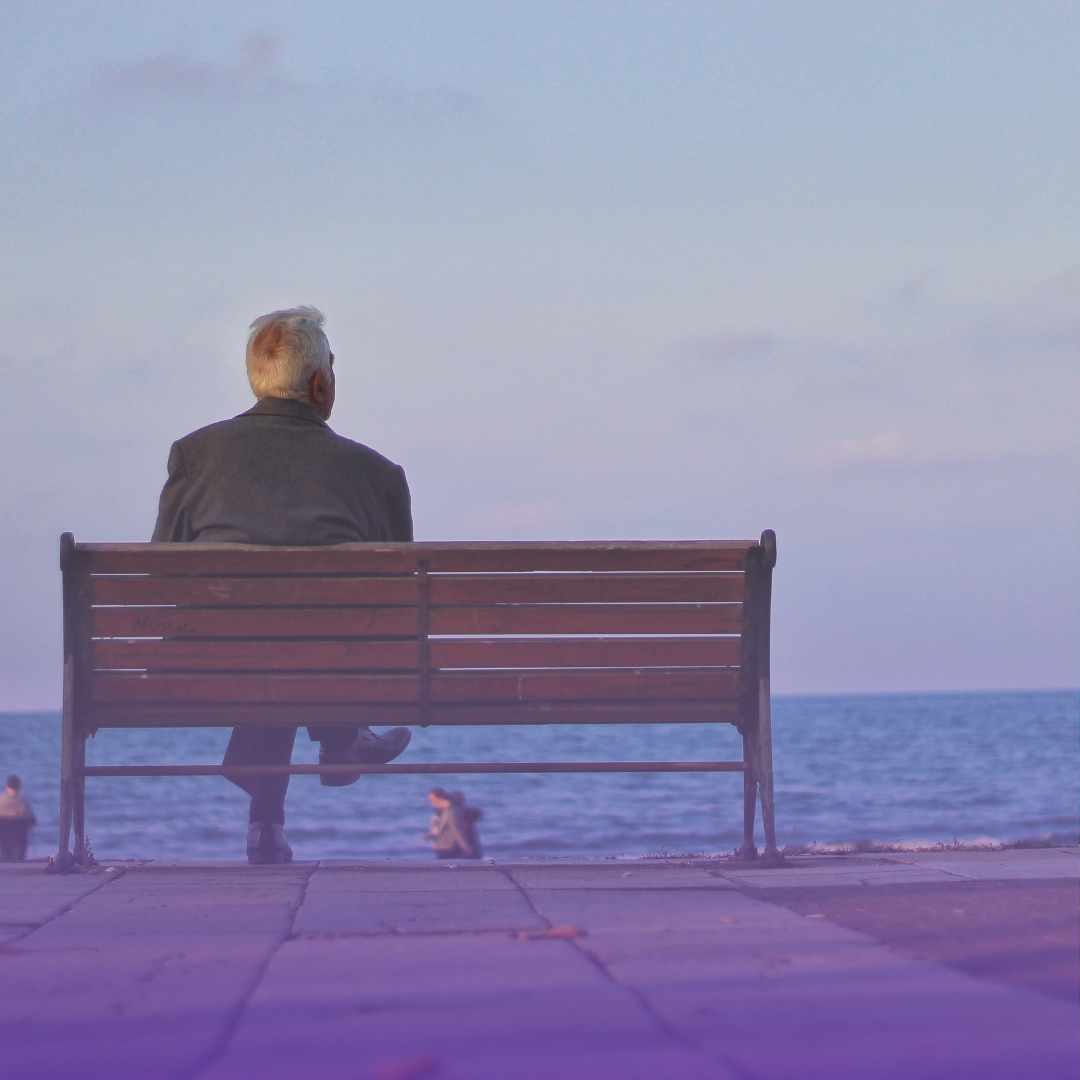When you think about your pension, you probably picture retirement, enjoying your savings when you finally clock out for good. But here’s something many people forget to ask: what actually happens to your pension when you die?
It’s not the most pleasant thought, but it’s an important one. Your private pension is often one of your most significant assets, and understanding how it will be treated can provide you with peace of mind and financial security for your family.
The answer depends on a few things: the type of pension you have, whether you die before or after retirement, and who you’ve nominated to receive the money. Let’s go through it step by step.
What Happens If You Die Before Retirement
This is the stage when you’re still paying into your pension, whether through your job or a personal plan.
Personal Pensions / PRSAs / Personal Retirement Bonds (PRBs)
If you have one of these private arrangements, the rules are straightforward:
- The full value of your pension pot is usually paid out.
- The money goes to your estate or to the people you’ve nominated.
- If it goes to your spouse or civil partner, it’s generally tax-free.
- If it goes to children, relatives, or others, inheritance tax may apply.
Example: Imagine you’ve built up €100,000 in a PRSA. If you die and your spouse is the designated beneficiary, they may inherit the entire fund tax-free. However, if you leave it to a sibling, they may be subject to inheritance tax, depending on the applicable thresholds.
Workplace/Occupational Pensions
If you’re in a company pension scheme, things work a little differently:
- A lump sum of up to four times your annual salary, plus your own contributions, can usually be paid out.
- If your fund is worth more than that, the extra may be used to provide a pension for your spouse or dependents.
- Employer contributions may not always be included if you die within the first two years of joining the scheme.
What Happens If You Die After Retirement
Once you retire, your pension turns into an income stream. What happens then depends on the option you chose.
If You Bought an Annuity
An annuity is a guaranteed income for life that you buy with your pension pot.
- With a single-life annuity, payments usually stop when you die.
- With a joint-life annuity, your spouse or dependant continues to receive a percentage of the income (often 50% or more).
- Some annuities have a “guarantee period” (e.g. 5 or 10 years). If you die during that time, payments continue to your beneficiaries until the period ends.
What is an annuity?
An annuity is a type of retirement product that you can purchase with your pension savings upon retirement. In simple terms, you hand over your pension pot to an insurance company, and in return, they give you a guaranteed income for the rest of your life.
If You Have an Approved Retirement Fund (ARF)
An ARF is different because it’s a flexible pot of money you keep invested in retirement. You can draw income from it, but the remaining balance is still yours. When you die:
- Your spouse or civil partner can usually inherit the ARF and keep it in their own name.
- Other beneficiaries (like children) may inherit it, but withdrawals could be taxed as income.
What is an Approved Retirement Fund (ARF)?
An Approved Retirement Fund (ARF) is a flexible way to manage your pension savings after you retire. Instead of using your whole pension pot to buy an annuity, you can transfer it into an ARF and keep the money invested.
With an ARF, you can:
- Withdraw income when you need it (subject to minimum annual withdrawals).
- Keep your money invested, allowing it to grow.
- Pass on the remaining fund to your spouse, children, or other beneficiaries when you die.
Be smart with your money. Get a personalised quote today!
Tax Implications When You Die
The amount of tax on your inherited pension depends on two main things:
- Your relationship with the person who inherits it, and
- The type of pension plan you have (lump sum, ARF, or annuity).
In Ireland, tax liabilities usually fall under income tax rules or Capital Acquisitions Tax (CAT). Let’s break it down.
Pension Lump Sums
If your pension is paid out as a lump sum (for example, from a personal pension or workplace scheme), it’s generally treated as part of your estate.
- A lump sum is typically subject to Capital Acquisitions Tax (CAT) at a rate of 33% (as of August 2025).
- The amount actually taxed depends on the beneficiary’s relationship to you and their available CAT threshold.
Spouses and Civil Partners
- If your pension passes to your spouse or civil partner, no CAT applies.
- This exemption also applies to divorced individuals or those whose civil partnerships have ended.
- They may still pay income tax and USC on withdrawals, but not PRSI.
This makes leaving your pension to your spouse or civil partner one of the most tax-efficient options.
Other Relationships
For everyone else, CAT is charged once the inheritance amount goes over a certain threshold. These thresholds depend on the relationship:
- Group A (children, including adopted, step, and foster children): €400,000
- Group B (parents, siblings, nieces, nephews, grandchildren): €40,000
- Group C (any other relationship, e.g. cousins, friends): €20,000
Anything above the threshold is taxed at 33%.
Example: If your child inherits €500,000, the first €400,000 is tax-free, and the remaining €100,000 is taxed at 33%.
Approved Retirement Funds (ARFs)
If you hold an ARF at death, what happens depends on who inherits it:
- Spouse or Civil Partner:
They can take over the ARF in their own name. No CAT or income tax applies at inheritance. However, income tax will apply when they withdraw money. - Children:
- Over 21: Subject to a flat 30% income tax on the inherited ARF.
- Under 21: Exempt from income tax, but CAT may apply if the inheritance is above the tax-free threshold.
- Over 21: Subject to a flat 30% income tax on the inherited ARF.
- Other Beneficiaries:
Anyone else inheriting an ARF may have to pay both CAT and income tax, making this the least tax-efficient route.
Annuities
If you purchased an annuity, the rules are less flexible:
- Income tax and/or CAT may apply to any death benefits paid out.
- With a single-life annuity, there may be no benefit left to pass on unless you choose a guarantee period.
- With a joint-life annuity, a portion of the income can continue for your spouse or dependant.
Pension inheritance can be tax-efficient, especially for spouses and civil partners. But for children and others, thresholds and tax rules make planning ahead very important.
Why Pension Planning Matters
Thinking about what happens to your pension when you die isn’t about being morbid, it’s about making sure your family is financially secure and your wishes are respected. A little planning now can save your loved ones a lot of stress later.
Here are some practical steps to consider:
- Fill out your nomination form and keep it up to date so your pension goes exactly where you want it to.
- Understand your pension type (personal, occupational, ARF, or annuity), because each one works differently when it comes to inheritance.
- Review your pension regularly, especially after major life events like marriage, divorce, or having children.
- Keep your documents and information organised so your family knows what pensions you have and how to access them.
- Check for lost or forgotten pension pots — consolidating them into one plan can make things easier to manage and sometimes more cost-effective.
- Get professional advice on the best retirement and inheritance strategy for your situation.
The more clarity you create now, the easier it will be for your family later.
Read Our Articles
We’ve covered a lot here, but pensions can be complex and everyone’s situation is different. That’s why we’ve put together plenty of articles to guide you through key financial decisions. You might like the following:
- Why a Private Pension in Ireland Is Smarter Than You Think
- Setting Up a Private Pension in Ireland
- 6 Reasons to Review Your Pension This Year
- 7 Smart Ways to Use Tax Relief to Grow Your Pension in Ireland
- What to Do 5 Years Before Retirement
- The Essential Guide to Pension and Retirement Planning
- Private Pension Myths in Ireland
Be smart with your money. Get a personalised quote today!
Get a Pension Quote
Your pension isn’t just about funding your retirement, it can also be a vital safety net for your loved ones when you’re gone. By understanding the rules and taking simple steps, you can make sure your hard-earned savings go exactly where you want them to.
At LowQuotes.ie, we make pensions and protection simple. If you’d like advice on your pension options, or want to ensure your family’s financial future is secure, get a quote today!
We provide a wide variety of financial services, such as mortgages, serious illness cover, pensions, financial planning, health insurance, and savings & investments.
Share this post
All our content has been written or overseen by a qualified financial advisor. However, you should always seek individual financial advice for your unique circumstances.
Warning: Past performance is not a reliable guide to future performance.
Warning: The value of your investment may go down and up.
Warning: If you invest in this product, you will not have any access to your money until you retire.
Warning: If you invest in this product, you may lose some or all of your investment.
Warning: This product may be affected by changes in currency exchange rates.



